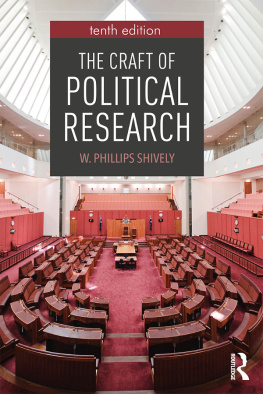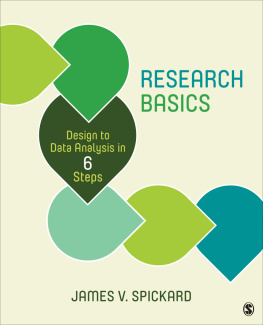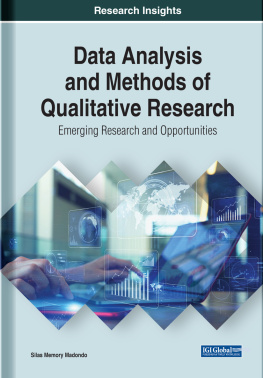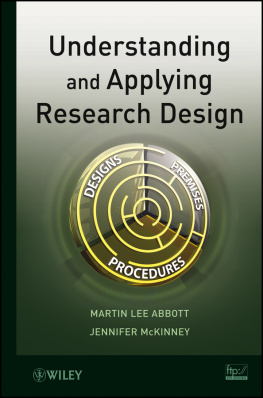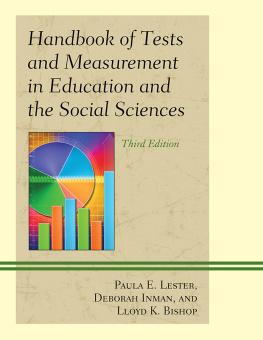
p.i
The Craft of Political Research
The Craft of Political Research is a non-technical introduction to research design and analysis in political science, emphasizing the choices we make when we design a research project and analyze its results. The books approach centers on asking an interesting research question, and then designing inquiry into the question so as to eliminate as many alternative explanations as possible.
How do we develop theory, and what constitutes a good research question? How do we develop measures and gather evidence to answer a question? How do we analyze our findings? Students will be introduced to such topics as multidimensional concepts, levels of measurement, validity, reliability, random and non-random measurement error, sampling, case selection, causality, experimental and quasi-experimental design, statistical inference, and regression and correlation analysis. Throughout, the emphasis is on understanding the back story of analysiswhy do we measure in a particular way, why do we choose one design as against another, why do we conduct our analysis as we do.
Emphasizing the internal logic of research methods and the collaborative nature of the research process, the greatest strength of the book is its clarity and the large range of political science examples it provides. It works at a conceptual level, seeking an understanding of the principles that underlie techniques and the reasons why we choose them.
New to this edition:
Updated and international examples from the US, UK, Latin America and China amongst others, and international organizations such as the World Bank and the United Nations.
New section, Reading Political Science reviews sources of published political research, with some broad principles for how to find good sources, and advises students on what to look for when reading a research report.
New section, Gathering Accurate Information reviews published sources of data, such as UNESCO, and offers advice about how to use such sources. It advises students on how to gather data in personal interviews and it acquaints them with publicly available data sets for secondary analysis.
Online material featuring revised learning objectives for each chapter, and a new section offering projects and questions for each chapter.
W. Phillips Shively is Professor of Political Science at the University of Minnesota, and has also served on the faculties of Yale University, the University of Oregon, and Oslo University, Norway. At the University of Minnesota, he has served as Provost for Arts, Sciences and Engineering, and has also been inducted into the Academy of Distinguished Teachers for his work with students.
p.iii
The Craft of Political Research
Tenth edition
W. Phillips Shively

p.iv
Tenth edition published 2017 by Routledge
711 Third Avenue, New York, NY 10017
and by Routledge
2 Park Square, Milton Park, Abingdon, Oxon OX14 4RN
Routledge is an imprint of the Taylor & Francis Group, an informa business
2017 Taylor & Francis
The right of W. Phillips Shively to be identified as author of this work has been asserted by him in accordance with sections 77 and 78 of the Copyright, Designs and Patents Act 1988.
All rights reserved. No part of this book may be reprinted or reproduced or utilised in any form or by any electronic, mechanical, or other means, now known or hereafter invented, including photocopying and recording, or in any information storage or retrieval system, without permission in writing from the publishers.
Trademark notice: Product or corporate names may be trademarks or registered trademarks, and are used only for identification and explanation without intent to infringe.
First edition published by Prentice-Hall, Inc. 1971
Ninth edition published by Routledge 2013
Library of Congress Cataloging in Publication Data
Names: Shively, W. Phillips, 1942- author.
Title: The craft of political research / W. Phillips Shively.
Description: Tenth edition. | Milton Park, Abingdon, Oxon; New York, NY: Routledge, 2017. | Includes bibliographical references and index.
Identifiers: LCCN 2016054854| ISBN 9781138284371 (pbk.) | ISBN 9781138284364 (hardback) | ISBN 9781315269559 (ebook)
Subjects: LCSH: Political scienceResearchMethodology.
Classification: LCC JA71 .S45 2017 | DDC 320.072dc23
LC record available at https://lccn.loc.gov/2016054854
ISBN: 978-1-138-28436-4 (hbk)
ISBN: 978-1-138-28437-1 (pbk)
ISBN: 978-1-315-26955-9 (ebk)
Typeset in Times New Roman
by Swales & Willis Ltd, Exeter, Devon, UK
Visit the eResources: www.routledge.com/9781138284371
p.vii
p.viii
p.ix
p.x
p.xi
I first met Phil Shively when he was an assistant professor and I was a graduate student at the same institution. I learned that he was a comparativist, with all the cross-cultural interests, historical perspective, and eye for important problems that come with that scholarly focus. Yet he approached his research questions with the same quantitative tools that most of us in American politics used. In the late 1960s, that was an unusual combination. Certainly, it was a revelation to me. Phil combined all this scholarly acumen with great scientific honesty, an utter lack of pretension, and a gift for making friends.
Phil was soon off to the University of Minnesota. A few years passed. He became editor of the American Journal of Political Science. He used his talents to act as a real editor, shaping not-quite-ready manuscripts into professional publications and helping beginning assistant professors like myself convey research findings to a professional audience.
I had begun teaching undergraduate courses in research methods. Some of the material was strictly quantitative, and I used an introductory statistics text. But political science is not a branch of statistics. It has its own logic, a blend of quantitative reasoning, qualitative judgment, and political horse sensewhat A. Lawrence Lowell, Harold Gosnell, and V.O. Key taught us to do. I needed another book, a text that would convey the importance of that unnamed something that distinguishes genuine intellectual achievement from mere technical expertise. One might call it the craft of political research. It was not hard to see which text I needed. Phils little volume conveyed precisely the intellectual range, sound judgment, and conceptual rigor my students needed. I have used and recommended this book in its many editions ever since.
The books topical coverage is just what one hopes for in an undergraduate methods course. First, it is more theoretically engaged than most such texts, and the conceptual discussion is nonsectarian. Marx and Duverger make an appearance; so do Mancur Olson and Anthony Downs; so do Philip Converse and Robert Putnam. Students will learn that ideas matter, not the statistical software, and they will see that theoretical narrowness is the antithesis of good science.
All the standard scope and methods topics appear in the text, including reliability, validity, scales of measurement, and much else. Students need to know those ideas before they begin their own research, but they dont know that they need to know. Too often, they hope that they never need to know. Indeed, badly conveyed, the material can be stupefyingly dull.
p.xii
Good teaching begins from where the student is. In this text, the classic concepts are enlivened by interesting political examplesarms races, congressional reapportionment, and the infamous
Next page
